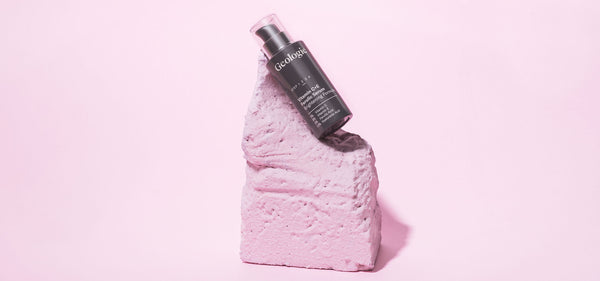Vitamin C is like a friend with benefits: while protecting the skin from damage caused by ultraviolet light and pollution, it also helps build collagen to slow down skin aging and give you fuller, healthier looking skin.
Thing is, there are several different forms of Vitamin C available on the market, so to make sure you’re selecting the right product with maximum benefits, follow the instructions below.
In this article you'll learn:
- What does Vitamin C serum do?
- When to use Vitamin C serum.
- What are the benefits of Vitamin C serum?
- Whether Vitamin C and retinol can be used together.
- Do ferulic acid and Vitamin C work together?
- The factors that impact Vitamin C’s stability.

What is Vitamin C?
Your body needs Vitamin C — a nutrient known as ascorbic acid — to form blood vessels, cartilage, muscle and collagen. It also assists your body's healing process.
Vitamin C is an antioxidant that helps protect your cells against the effects of free radicals — molecules produced when your body is exposed to tobacco smoke, UV rays, X-rays, smog, etc. In the body, free radicals can lead to heart disease, cancer and other diseases; on the skin, they compromise collagen production and lead to premature aging.
Thing is, your body doesn't produce vitamin C naturally, but you can get it from citrus fruits, berries, brussels sprouts, broccoli and spinach, among others. Vitamin C is also available as an oral supplement, typically in the form of capsules and chewable tablets.
For the skin, topical creams or serums are available. “For skincare, along with sunscreen and retinol, vitamin C is one of the top three ingredients you can use,” said Geologie founding dermatologist Dr. Steve.
What are vitamin C serum benefits?
Vitamin C serum provides a unique level of anti-aging protection and benefit. Here are some of the primary ways:
-
Protects against environmental stressors: One of vitamin C’s main functions is protecting the skin from damage caused by ultraviolet light and pollution, which create free radicals in the skin. “Free radicals harm our skin by affecting the DNA expression of collagen production, which enables free radicals to damage the skin,” said Dr. Steve. “Vitamin C is kind of like the sacrificial lamb, reacting with these free radicals and scavenging them so they don’t interact with your skin cells.”
-
Promotes collagen production: Vitamin C plays a key role in collagen synthesis. "Collagen gives our skin support and structure, but the problem is, with age, production declines and we begin to notice wrinkles and lines,” said Dr. Steve. “Vitamin C helps build collagen bundles, an important step in the production process, which can lead to fuller, healthier looking skin.”

When and how do I use Vitamin C serum?
For the most effective results, use Vitamin C during your morning skincare routine, and follow these easy instructions:
- First: Use a gentle cleanser — we recommend a liquid exfoliant with salicylic acid, like our Everyday Face Wash.
- Apply 3-4 pumps of Vitamin C + E Ferulic Serum to the face and neck (don’t forget the undereyes!)
- Then apply moisturizer and SPF — you can find both in the Morning Cream. (SPF is the key here, as UV rays can counteract the effectiveness of Vitamin C.)
Is it OK to use retinol with Vitamin C?
Applying retinol and Vitamin C at the same time can pose a problem. First of all, vitamin C and retinol have different solubility requirements. Vitamin C is soluble in water, whereas vitamin A retinol is soluble in oil. If you’re layering the two, it can negate the effect of both of them. “Retinol works better at a higher pH and vitamin C works better at lower pH, that's why separating them is a good idea,” said Dr. Steve.
But using vitamin C in the morning and retinol at night — as we suggest with the full skincare routine — no problem!
Do ferulic acid and vitamin C work together?
Ferulic acid helps stabilize vitamin C while also increasing antioxidant protection. (Ferulic acid is an antioxidant, which helps prevent the negative effects that happen with UV radiation). “There is some data that suggests ferulic acid has the potential to offer twice the amount of antioxidant protection when combined with vitamins C and E,” said Dr. Steve.
We use ferulic acid in our Vitamin C + E Ferulic Serum.

What other factors can impact Vitamin C’s stability?
In designing vitamin C serums, there’s a tremendous focus on making sure that the ingredient is stable, and therefore effective. “Vitamin C is notoriously unstable,” said Dr. Steve. “You have to have the right formulation and the right pH balance to ensure that it's working because otherwise you’re just buying an expensive cream without actually any benefit.”
Here are factors that are related to Vitamin C’s stability:
-
Packaging can affect vitamin C’s stability. Airless and opaque containers are best, because air and light can degrade the product over time. “Be wary of droppers,” said Dr. Steve. “Every time you open that product, you're exposing it to more and more oxygen, which is going to degrade the product over time.”
-
The type of Vitamin C used is also important. Many skincare companies use L-ascorbic acid in their formulations. But be aware, L-ascorbic acid is water soluble, which means it has to be delivered in a liquid texture (like a dropper), which means it doesn’t absorb, or “convert” as effectively because it doesn’t stay on the skin for very long. A more stable vitamin C is ethyl-L-ascorbic acid, which Geologie uses in its formulations. “Ethyl-L-ascorbic acid is an extremely stable form of vitamin C,” said Dr. Steve. “The conversion rate to ascorbic acid in the skin is more than 80%, which means you don’t need as high a percentage of it as you would L-ascorbic. In our Vitamin C+E Ferulic Serum, we use 5% ethyl-L-ascorbic acid, which outperforms the 15% L-ascorbic acid you’ll see in other formulations.”
- How it applies. The real test of an effective vitamin C is how it applies. A fully stabilized formulation should be tacky, slightly sticky. That’s how chemists know it’s good. “If it doesn’t feel slightly sticky when you apply it, you’re not using a vitamin C ingredient or percentage that will be effective,” said Dr. Steve. “We worked hard on finding the balance between cosmetic elegance and efficacy. You need a product that will stay on the skin for a bit so it’ll get absorbed. Those pure liquid products you see might just be very expensive water.” Don’t worry, the stickiness will disappear after a few minutes.















